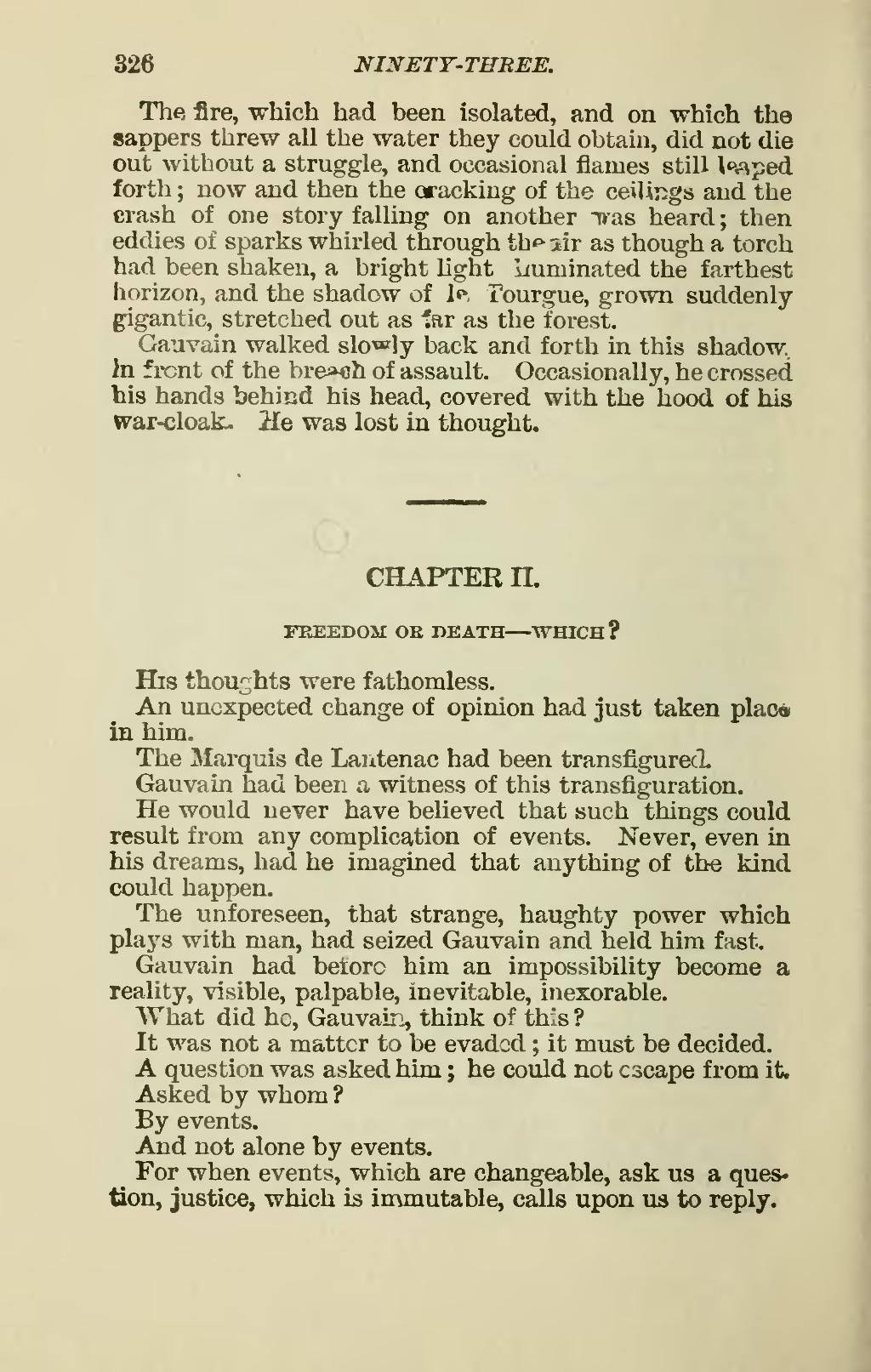The fire, which had been isolated, and on which the sappers threw all the water they could obtain, did not die out without a struggle, and occasional flames still leaped forth; now and then the cracking of the ceilings and the crash of one story falling on another was heard; then eddies of sparks whirled through the air as though a torch had been shaken, a bright light illuminated the farthest horizon, and the shadow of le Tourgue, grown suddenly gigantic, stretched out as far as the forest.
Gauvain walked slowly back and forth in this shadow, in front of the breach of assault. Occasionally, he crossed his hands behind his head, covered with the hood of his war-cloak. He was lost in thought.
CHAPTER II.
FREEDOM OR DEATH—WHICH?
His thoughts were fathomless.
An unexpected change of opinion had just taken place in him.
The Marquis de Lantenac had been transfigured.
Gauvain had been a witness of this transfiguration.
He would never have believed that such things could result from any complication of events. Never, even in his dreams, had he imagined that anything of the kind could happen.
The unforeseen, that strange, haughty power which plays with man, had seized Gauvain and held him fast.
Gauvain had before him an impossibility become a reality, visible, palpable, inevitable, inexorable.
What did he, Gauvain, think of this?
It was not a matter to be evaded; it must be decided.
A question was asked him; he could not escape from it.
Asked by whom?
By events.
And not alone by events.
For when events, which are changeable, ask us a question, justice, which is immutable, calls upon us to reply.
